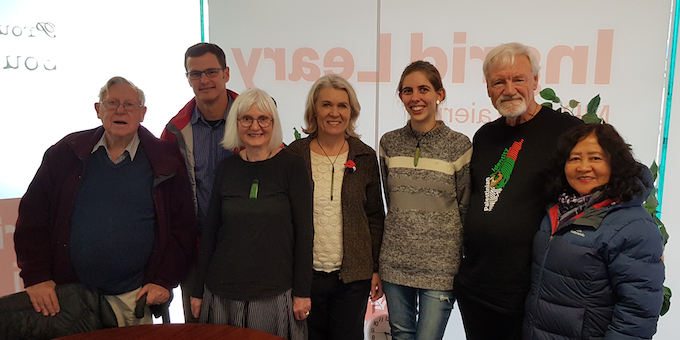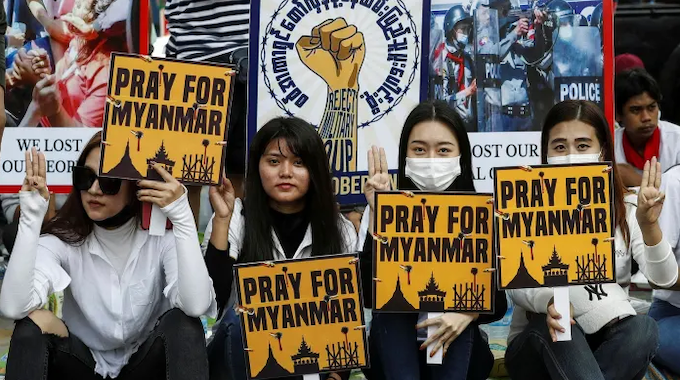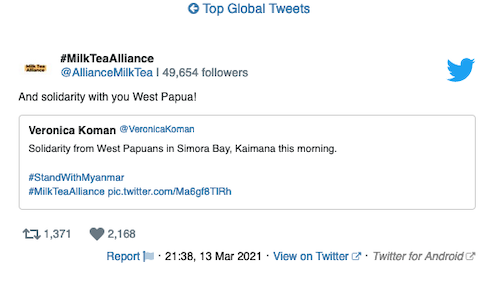SPECIAL REPORT: By Graeme Acton
As the military junta in Myanmar continues its brutal attempt to subdue nationwide protests following February’s coup, New Zealand-based Myanmar students are keeping in contact with family and colleagues back home.
It is a scary period, with internet services cut for many hours every day, and people disappearing from their homes without explanation.
In Myanmar’s major cities of Yangon and Mandalay, students have been in the front line of pitched street battles with the Tatmadaw (Burmese military) units who have been responsible for around 500 deaths since they deposed the elected government on the morning it was due to begin its second term.
The Tatmadaw have always regarded universities as hotbeds of organised resistance , and university authorities in Myanmar estimate roughly a third of those arrested over the past two months have been students, teachers, or academic staff.
Myanmar’s students have fought the army on the streets many times before, including protests against a military government in 1962, and the vicious conflict in 1988.
In the 1980s, the Tatmadaw employed the same tactics we are seeing again play out – hundreds of civilians killed, and protest leaders imprisoned.
Back then the army moved directly against the universities, stripping them of autonomy and moving campuses to the outskirts of major towns .
Higher education unavailable
Many were simply closed altogether and for many years higher education was unavailable in Myanmar.
The country’s immediate future is opaque, but students in New Zealand and Myanmar are determined they will not be heading back to the dark days of the early 1990s.
Zet is a student currently in Mandalay, having completed studies at Victoria University last year, and he is terrified at the way the army is operating.
“There’s been fatalities across the city,” he says, the last few days the military have been on holiday so its been quiet, but the army is like a gang now .. it’s a real struggle between the people and the Tatmadaw.”
“Both sides are standing firm, but the Tatmadaw won’t give up, that’s their history , they don’t give up”…
“The public mood though is very strong, stronger than in the past .. and getting stronger.”
Back in Wellington, Zet’s student colleagues from the Myanmar Students Association are keen to keep up with what is happening on the streets with the protest movement.
Concerned about families
But they are also extremely concerned about their families.
Jacqueline Swe says her family is away from any major protest area, but like everybody they are living with the constant fear the army can simply enter their homes and take anything they want.
“It’s a bit terrifying, and its crazy too, we now have the army attacking the people instead of protecting them.”
“We have no line of defence anymore, and we can’t depend on the police and that’s scary.”
“It’s just a big mess now.”
Wayne is from Yangon , and says he has been hearing about the dire conditions in some parts of the city.
“I’m hearing from my mother that the soldiers are chasing kids into strangers homes, they are looking at people’s cellphones on the street to see what social media accounts you control and what’s on there.
New posts deleted
“So my mother, whenever she goes out she has to delete any new posts she doesn’t want the army seeing.”
Students in New Zealand are doing what they can to support those on the barricades, and while the junta continues its old-school attempts to root out protest organisers they face a uphill battle against a generation of young people who lived and breathed democracy in Myanmar between 2011 and 2020.
Digital access to a globalised world has exposed Myanmar’s students to updated forms of protest organisation and activism using social media.
While the Tatmadaw may use the 1980s playbook to shut the universities, they may find it harder to erase the foundations of democratic politics which have taken root in Myanmar.
With most major figures in the country’s NLD government now under house arrest, a new grouping, the CPRH, has emerged.
Myanmar’s parallel civilian government, the CPRH or Committee Representing Pyidaungsu Hluttaw was formed by legislators who were removed following the coup. Its spokesperson is Mahn Win Khaing Than, former speaker of the house.
In Wellington, Myanmar-born student Peter is among those suggesting the CPRH must be viewed as the country’s legitimate government.
‘Do not recgnise the junta’
“The most important thing New Zealand could do would be to recognise the CPRH as the legitimate government of Myanmar – and not the junta,” says Peter.
”I know New Zealand has said they won’t work with the junta and I know there are sanctions in place but personally I don’t believe [the sanctions] work in Myanmar.
“I think the primary focus for the [New Zealand] government should be recognising the CPRH.
“ASEAN also plays a role,” says Peter, but South East Asian nations has power in its trade with Myanmar … “those countries need to put more pressure on Myanmar through trade.”
For student Zet in Mandalay, pressure from the outside world still seems to be having a minimal impact on the generals.
“I think it’s quite obvious the Tatamadaw has been relying on China and Russia, partly India as well ..”but international pressure won’t really impact [on] the Tatmadaw I think , unless China would somehow change the game.”
“China is the key to the Tatmadaw, only China can change their behavior.”
What actual change?
But what might be the actual change China could force on the junta, apart from convincing the generals to stop killing their own people? … and can Myanmar move back to some sort of democratic model after all the violence?
Peter is among those who see a future role for the NLD, even if it has been accused of not listening to its voters.
“I know the National League for Democracy can have a role in future if they are more inclusive, if they allow more ethnic groups to have a voice,” he says.
Others, like Zet, feel a change might involve a future move to a federal system, where Myanmar’s states run themselves to a large extent, watched over by a central government in Naypyidaw.
Inside Myanmar, student leaders suggest a major nationwide revolt is a possibility, led first by ethnic armies from Myanmar’s restive provinces, and joined by the protesters and other anti-military groups.
NZ-based members of the Myanmar Students Association, exhibit a quiet determination to prevent their country sliding back into a military-induced coma.
“In NZ mostly it’s the older generation that know about this,” says one. “The younger Kiwis need to know more about this.“
Graeme Acton joined the Asia Media Centre as manager in February 2020, moving from the position of foreign news editor with RNZ in Wellington. His experience in media stretches back to the 1980s, and he has held a series of senior editorial positions with RNZ, as chief reporter, Morning Report deputy editor, and regional editor.
This post was originally published on Radio Free.




